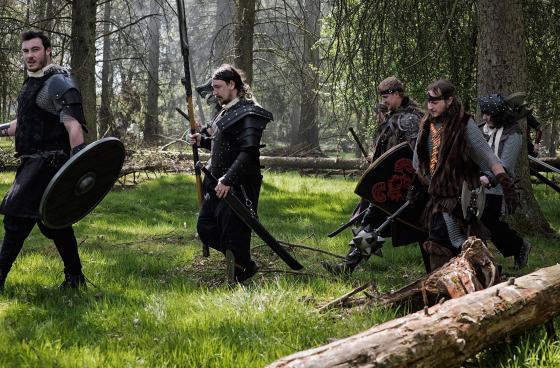
Please fill out this survey!
As a science, Archaeology is always trying to expand its methods of studying the past. One method is through experimentation of Historical practices, or put simply Experimental Archaeology. This discipline involves attempting to learn how certain things were done in ancient cultures, like carpentry without metal tools or spinning wool without modern technology. Due to its investigative nature, Experimental Archaeology often adopts new methods, such as Live Action Role Play.
Live Action Role Play, or LARP for short, is a hobby in which participants portray characters in a fictional setting, the aim is usually to achieve goals in the fictional setting. The hobby, therefore, teaches certain skills and has been applied in many academic fields. To this day, LARP is used in higher education to teach students how to solve problems in theoretical scenarios, or empathise with fictional others to understand their points of view.
Sadly, because of its origins as a pass time, the application of LARP has often been met with levels of criticism in Archaeology. It has resulted in strong opinions both supporting and dismissing its uses as an interpretative tool. This Survey is intended to gauge popular opinions about LARP and its possible application to Experimental Archaeology today. The results shall be studied and documented into a dissertation report published in April at the University of Worcester, please answer the questions honestly and completely.
